The Lonely Salmon Item Number: Nb3.1486 from the MOA: University of British Columbia
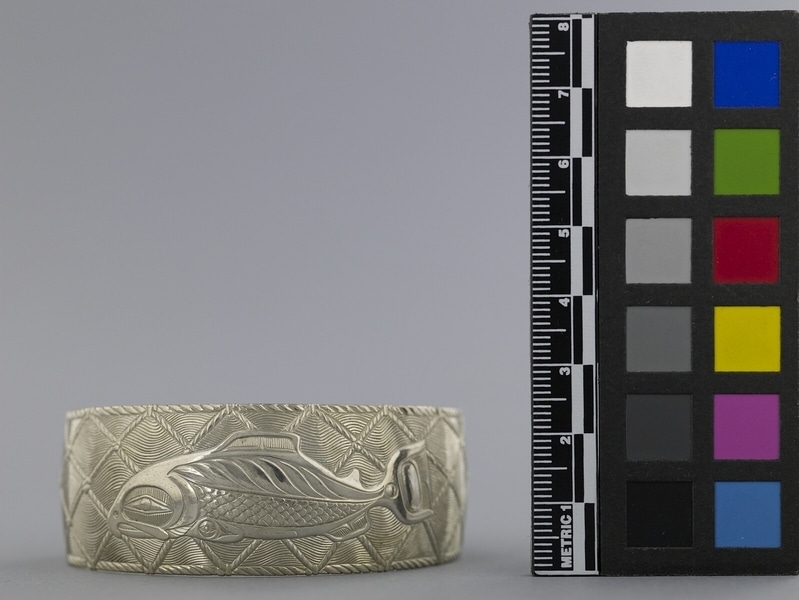
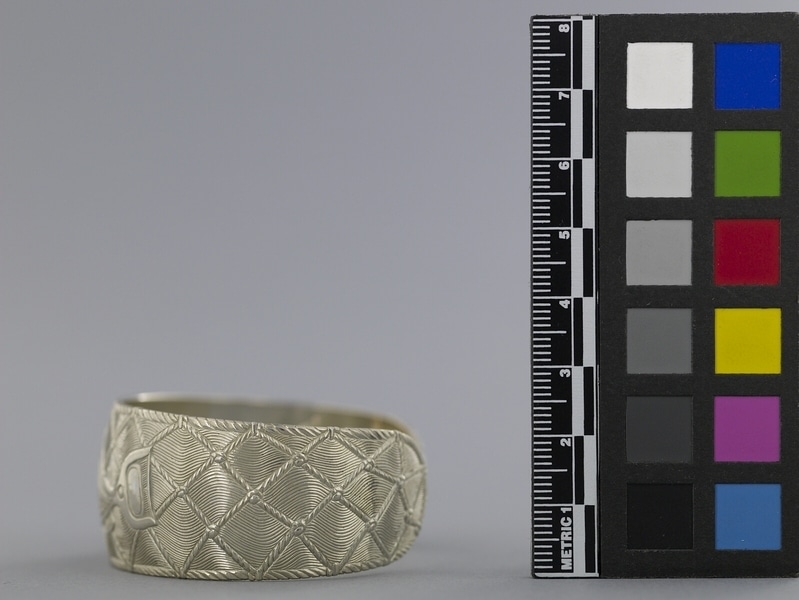
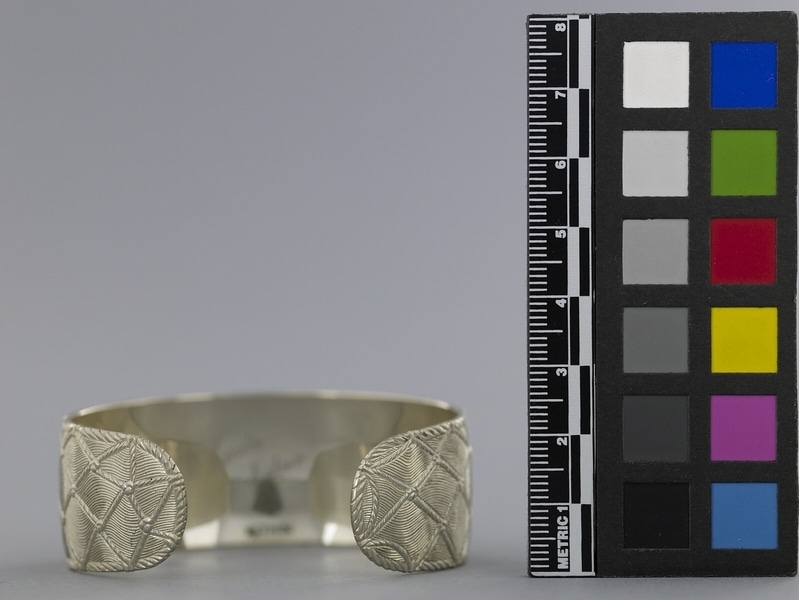
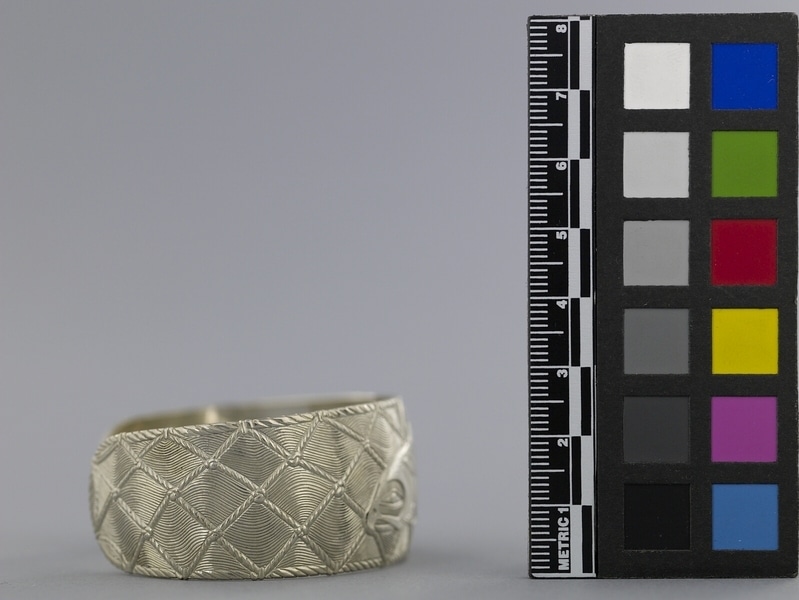
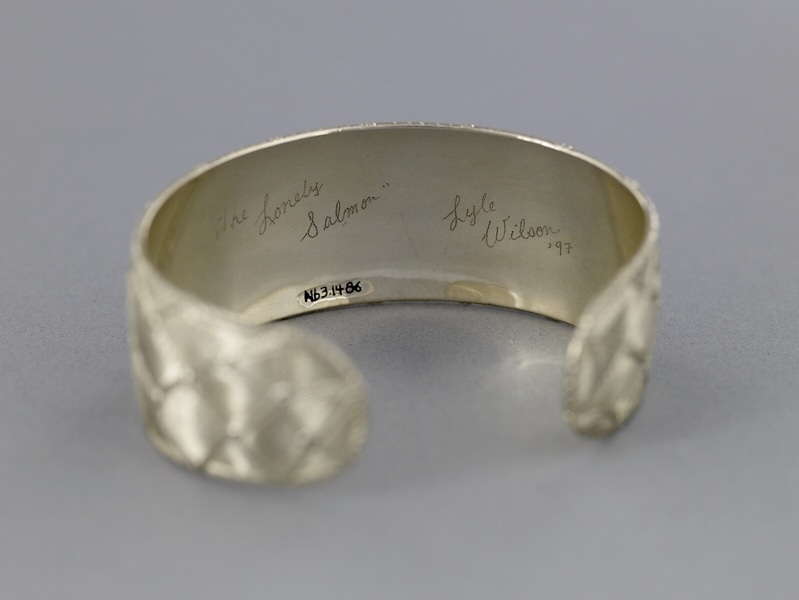
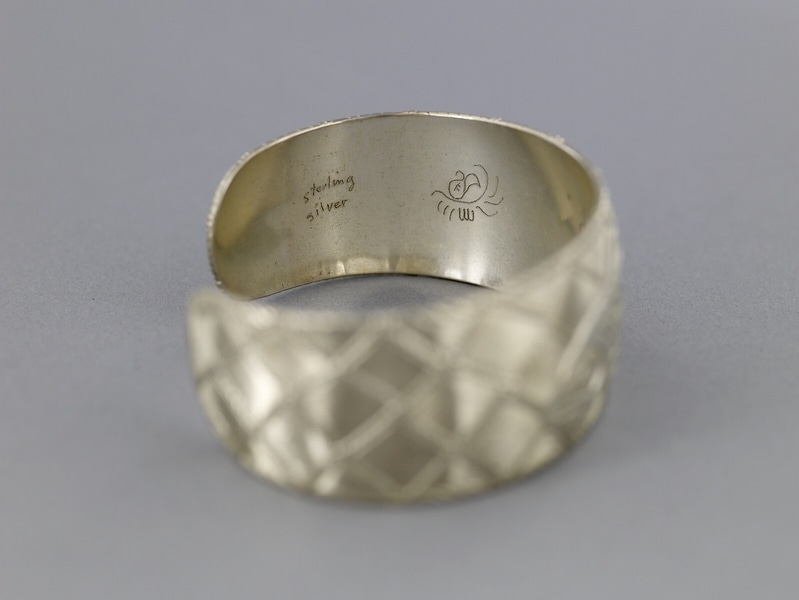
Description
Silver bracelet carved with a central, salmon design. The whole surface of the bracelet has a net-like design consisting of a braided, diamond shaped pattern with a repetitive, wave design in between each. The bracelet is oval shaped and the rounded ends do not meet. There is an inscription on the back reading: “The Lonely Salmon”, Lyle Wilson ’97.
Iconographic Meaning
The salmon represents 'The Lonely Salmon' (see story in narrative); the criss-crossing lines of rope depict a net, which represents the human species; the wavy lines represent water.
Narrative
Written by Lyle Wilson: This piece has a contemporary source. Many years ago I spent a few summers as a commercial salmon fisherman. I saw great numbers of salmon and the volume was mind-boggling. I talked to many old time fisherman who told me that the fish weren't as plentiful as the old days. This astounded me given the numbers I witnessed. My old skipper used to remark that when he was young, they wouldn't even set the net unless they could see there was a massive school of fish present. During the start of one day we caught 50 or 60 fish in one set of the net and in our very last set of the day we caught one fish. This happened several times and each time the general remark was: "That's a pretty lonely salmon." Years later the States of Alaska and Washington and the Province of British Columbia engaged in a bitter dispute about commercial salmon fishing. I began to think about the salmon and how many people depended upon them: Native people, cannery workers, commercial and sports fishermen, etc.
The salmon seems to be coming to an uncertain future; perhaps similar to the buffalo or worse, the pasenger pigeon. Using one salmon, a net to represent the human species, and a background of wavy lines to represent water, I decided to incorporate my old skipper's remark into a bracelet. When we didn't get any fish my old skipper used to say that we were: "Hauling water." I hope the salmon has a brighter future than this last remark.
Item History
- Made by Lyle Wilson (Maker) in Vancouver, British Columbia, Canada during 1997
- Owned by Formline Images and Creations before May 20, 1998
- Received from Formline Images and Creations (Seller) and Museum of Anthropology Shop Volunteers (Funding source) on May 20, 1998
What
- Name
- The Lonely Salmon
- Identification Number
- Nb3.1486
- Type of Item
- bracelet
- Material
- silver metal
- Overall
- height 2.5 cm, width 15.9 cm
Who
- Culture
- Haisla
- Creator
- Lyle Wilson (Maker)
- Previous Owner
- Formline Images and Creations
- Received from
- Formline Images and Creations (Seller) and Museum of Anthropology Shop Volunteers (Funding source)
Where
- Holding Institution
- MOA: University of British Columbia
- Made in
- Vancouver, British Columbia, Canada
When
- Creation Date
- during 1997
- Ownership Date
- before May 20, 1998
- Acquisition Date
- on May 20, 1998
Other
- Item Classes
- metalwork
- Condition
- good
- Current Location
- Case 21
- Accession Number
- 1746/0001